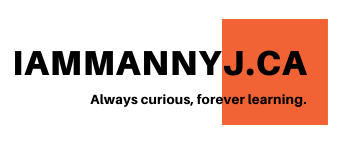Recent reports of online, mobile and POS (Point-of-Sale) security breaches have started to erode our confidence in the reliability of the cloud. But have we focused too much on convenience? Or should we simply revert to best practices, for computing security? Time stands still for no one and we cannot necessarily roll back the clock to an older time. We must move forward, however there are some simple steps you can take to help secure your own personal data.
Where do you store your sensitive data?
Are you unsure about keeping your data online? Are you worried about hackers accessing your personal data? You could consider an offline storage solution, like an external encrypted hard drive. Many companies have made cloud solutions convenient; however you must take time to analyze your legal liability. Do you have the right measures in place when handling your sensitive data?
What about passwords?
Be careful of phishing scams. They have been around for a while; however individuals are still being fooled into giving up passwords and personal information. Phishing is the act of sending an email to a user, falsely claiming to be a legitimate company, organization or individual, in an attempt to trick the user into surrendering private and confidential information. Phishing can also happen while browsing the web. As a best practice consider changing your passwords on a frequent basis. However more importantly think before you click. Are you visiting a credible website? Did you receive an email from someone asking you to reset your account security? Don’t be tricked into damaging your privacy and personal information.
What is two-step authentication?
Two-factor authentication is one of the best security measures you can enable. Two-factor authentication is a feature that asks for more information; adding a second layer of security to your accounts. In general, it requires a password and possibly a text SMS code, on your Smartphone. Both Google and Microsoft even have applications, which can help with the authentication process (Google Authenticator and Microsoft Account Management apps). There is a bit of inconvenience, being that you may have to pull out your Smartphone, however how more problematic will it be when you are spending countless hours trying to repair the damage done by a hack.
Do I need mobile encryption?
You may not have a choice soon, with many mobile devices. The new iPhone 6 has encryption enabled by default. Recent reports have indicated that Google will do the same. With healthcare and other industries moving to data encryption for health records, will regular users be far behind? Device encryption helps to stop criminals from getting the data. By encrypting data your data you are adding another layer of security, which may in the end cause a hacker to abandon his or her efforts.
Conclusion
In the end it is up to you to take care of your own personal data. When working in the cloud carefully examine how you are handling your data. Are you working with a company that is security or simplicity first? How much does your vendor they truly care about your data? Recent high-profile security breaches show us that the Internet (or the cloud), and all of the benefits around it, are still a work in progress. We are still vulnerable; however ignorance is not an excuse. We must take care to be vigilant and security minded when it involves sensitive information.

